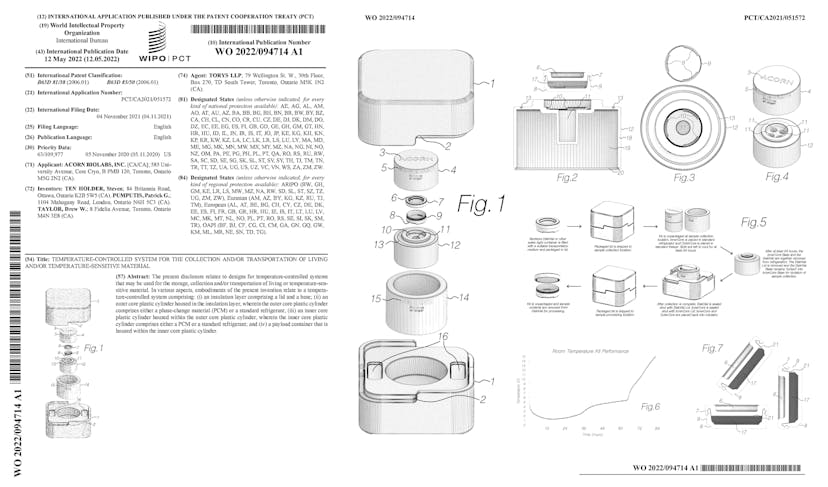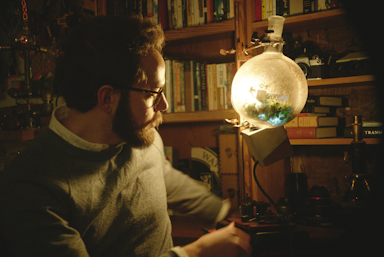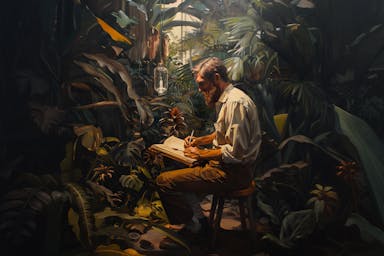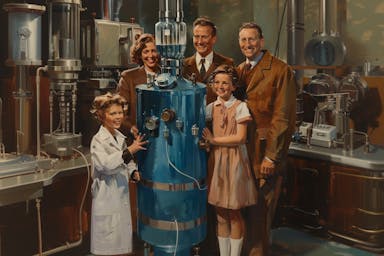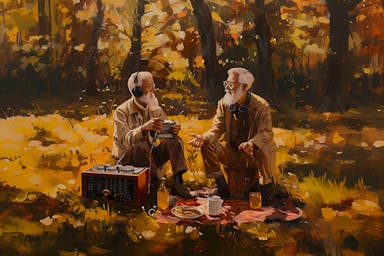Should we be cryopreserving
young cells for longevity?
Back in 2015, I conceived of and co-founded Acorn Biolabs
to make young-cell-cryopreservation-as-a-service real.
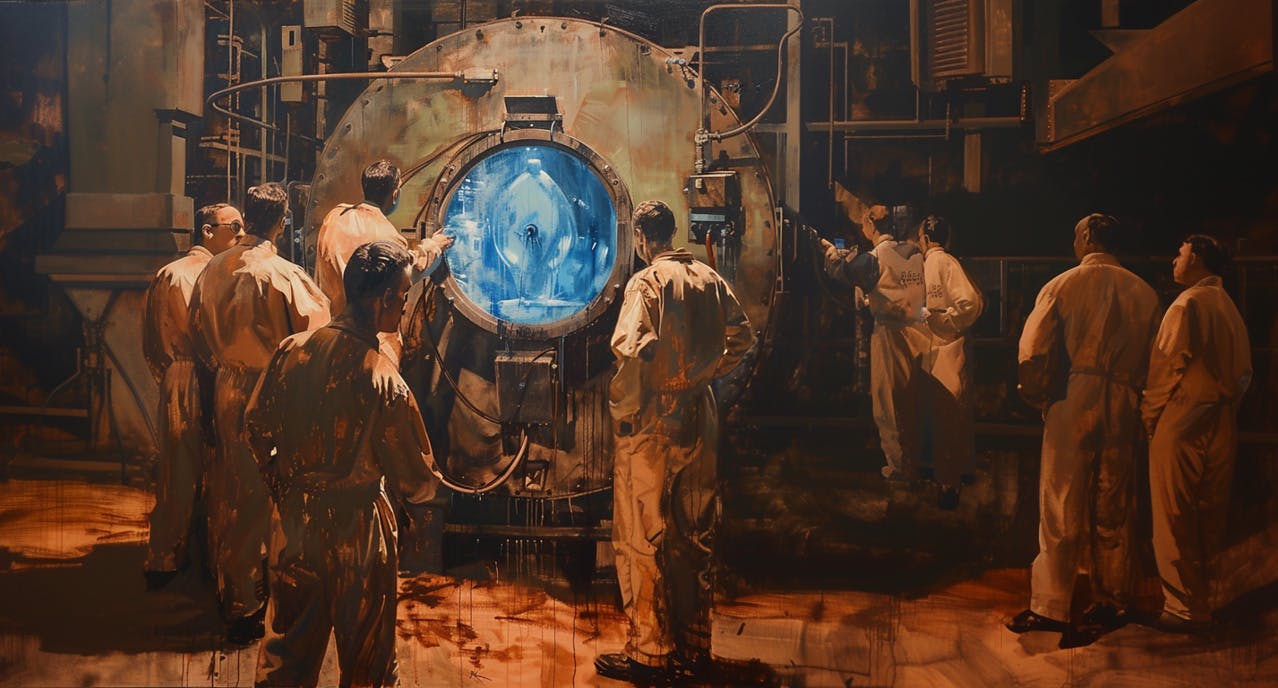
This page is intended to be a fun time-capsule of nostalgic moments that
capture my story with Acorn from concept through execution.
But first, a short essay on the core logic that I believe makes
young-cell cryopreservation a logical no-brainer.
Should we be cryopreserving
young cells for longevity?
Back in 2015, I conceived of and co-founded
Acorn Biolabs to make that idea real.

This page is meant as fun time-capsule of nostalgic moments that capture my story with Acorn from concept to launched company.
But first, a short essay on the core logic that I believe makes young-cell cryopreservation a no-brainer.
Pascal's Bioengineering Wager
The logic behind modern young-cell cryopreservation.
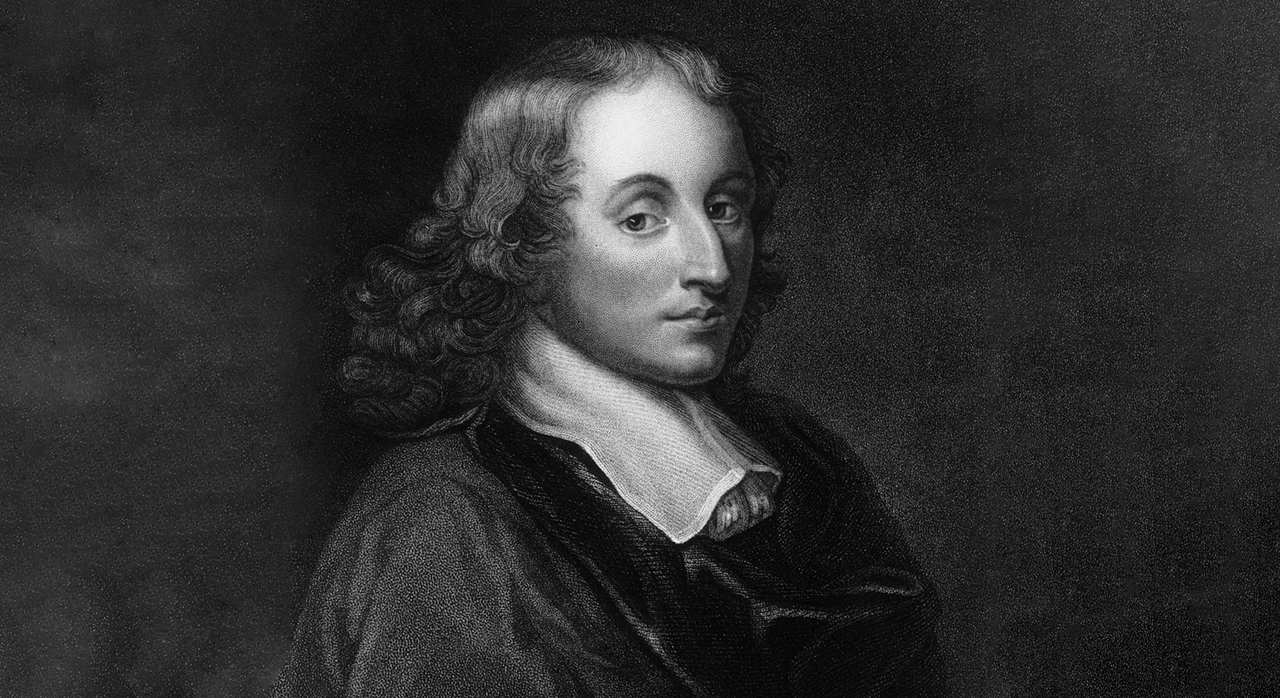
Have you heard of Pascal's Wager?
It's a very simple, statistically reliable reason to believe in the Christian God.
Neither does Pascal depend on evidence nor personal revelation for his argument. Instead, he merely emphasizes the relatively insignificant cost to secure the possibility of an infinitely positive outcome: eternity in heaven. While a reasonable thinker may doubt heaven's existence on any number of grounds, there will always remain an inescapable uncertainty. One hour of church once a week (plus tithing) isn't an irrational price to pay to hedge one's bets.
Whether or not Pascal's Wager is actually convincing, his argument's underlying rationale apply neatly today to human longevity.
My modern bioengineering-longevity-version goes like this:
There are compelling reasons to believe biotechnology is going to continue advancing tremendously in the coming decades and those advancements may lead to radical life-extension therapeutics.
Imagine, for example, using your own cells in a 3D-bioprinter to create a fresh new liver that could save your life. Or modifying the embryological process to generate new organs from individual stem cells for transplant.
Both are real strategies already in preliminary proof-of-concept that could lead to substantial health and life-extension improvements.
If we can manage to live decades or centuries longer we can bear witness to human civilizational progress over millennial time-scales, upgrade our own intelligence, and join humanity's incredibly rich technological future into the stars and beyond. Basically, real heaven.

Longevity is 'heaven' in Pascal's Bioengineering Wager.
So, what's the 'church'? What's the low-cost thing we should each be doing to get secure our spot in this possible heaven?
Well, there's trouble in paradise - an original sin, of sorts.
The quality of the cells you start with might matter a lot and we're all getting old, fast.
Imagine yourself decades from now as an old fart donating your stem cells to be grown and used in 3D-bioprinting to create your new liver, or heart, or skin, or kidney, or neurons. Your stem cells suck because you're old. Your granddaughter is happy to donate her healthy young stem cells, but the doctors tell you that your immune system won't accept. If only you had… BANKED YOUR OWN STEM CELLS FOR YOURSELF WHEN YOU WERE YOUNG.
This is 'church' in my bio version of Pascal's Wager.
The cost of cryopreservation is low.
It's called Acorn Biolabs and it's the startup I started and co-created with Drew Taylor and Patrick Pumputis. In our lifetimes scientists will have created bio-engineering solutions powerful enough to improve our lifespans using preserved young cellular material. It really matters whether you preserved your cells or not because you're risking the worst possible outcome: missing out on the opportunity to continue doing the things you love indefinitely. That's pretty powerful. Is it more or less convincing than the original wager? It becomes personal to each of us to look at the facts, what we believe in, what we want out of life, and how much we feel there's a real opportunity for bio-engineering to achieve something.
Pascal's Bioengineering Wager
The logic behind modern young-cell cryopreservation.

Have you heard of Pascal's Wager?
It's a very simple, statistically reliable reason to believe in the Christian God.
Neither does Pascal depend on evidence nor personal revelation for his argument. Instead, he merely emphasizes the relatively insignificant cost to secure the possibility of an infinitely positive outcome: eternity in heaven. While a reasonable thinker may doubt heaven's existence on any number of grounds, there will always remain an inescapable uncertainty. One hour of church once a week (plus tithing) isn't an irrational price to pay to hedge one's bets.
Whether or not Pascal's Wager is actually convincing, his argument's underlying rationale apply neatly today to human longevity.
My modern bioengineering-longevity-version goes like this:
There are compelling reasons to believe biotechnology is going to continue advancing tremendously in the coming decades and those advancements may lead to radical life-extension therapeutics.
Imagine, for example, using your own cells in a 3D-bioprinter to create a fresh new liver that could save your life. Or modifying the embryological process to generate new organs from individual stem cells for transplant.
Both are real strategies already in preliminary proof-of-concept that could lead to substantial health and life-extension improvements.
If we can manage to live decades or centuries longer we can bear witness to human civilizational progress over millennial time-scales, upgrade our own intelligence, and join humanity's incredibly rich technological future into the stars and beyond. Basically, real heaven.

Longevity is 'heaven' in Pascal's Bioengineering Wager.
So, what's the 'church'? What's the low-cost thing we should each be doing to get secure our spot in this possible heaven?
Well, there's trouble in paradise - an original sin, of sorts.
The quality of the cells you start with might matter a lot and we're all getting old, fast.
Imagine yourself decades from now as an old fart donating your stem cells to be grown and used in 3D-bioprinting to create your new liver, or heart, or skin, or kidney, or neurons. Your stem cells suck because you're old. Your granddaughter is happy to donate her healthy young stem cells, but the doctors tell you that your immune system won't accept. If only you had… BANKED YOUR OWN STEM CELLS FOR YOURSELF WHEN YOU WERE YOUNG.
This is 'church' in my bio version of Pascal's Wager.
The cost of cryopreservation is low.
It's called Acorn Biolabs and it's the startup I started and co-created with Drew Taylor and Patrick Pumputis. In our lifetimes scientists will have created bio-engineering solutions powerful enough to improve our lifespans using preserved young cellular material. It really matters whether you preserved your cells or not because you're risking the worst possible outcome: missing out on the opportunity to continue doing the things you love indefinitely. That's pretty powerful. Is it more or less convincing than the original wager? It becomes personal to each of us to look at the facts, what we believe in, what we want out of life, and how much we feel there's a real opportunity for bio-engineering to achieve something.
Digital Memorabilia
Nostalgic bits of content from my years working on Acorn.
Digital Memorabilia
Nostalgic bits of content from my years working on Acorn.
Pitching Justin Trudeau in Waterloo, 2016
Trudeau was doing a tour of the Waterloo innovation ecosystem. Shortly after winning Waterloo's big $25k pitch competition.
Acorn as an incubating startup in Waterloo, 2017
I gave an interview for a university review podcast (Ten with Ken) on the Velocity startup ecosystem at the University of Waterloo back when I was the CEO of Acorn.
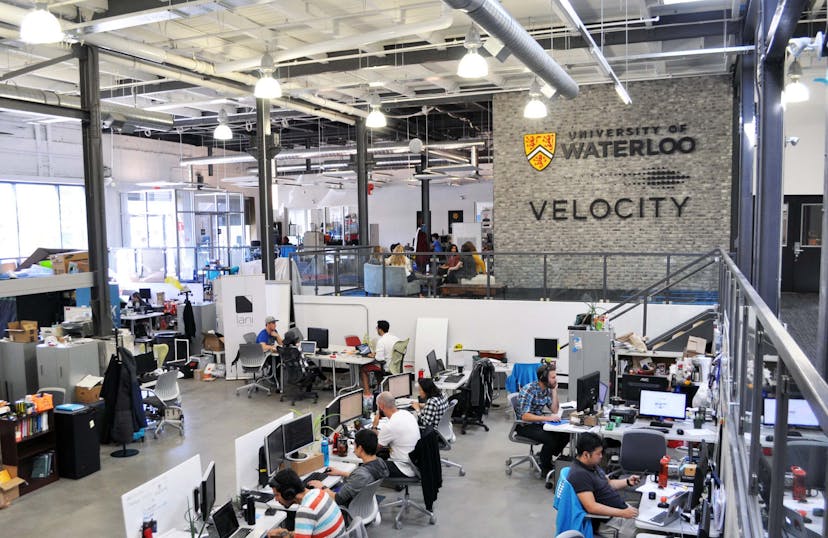
Acorn as post-launch startup in Toronto, 2018
I gave an interview for podcast 'Spotlight on the Six' (Akash Pasricha) on Acorn, bioengineering, the Toronto startup ecosystem, and my transition from CEO to COO of Acorn Biolabs in 2017.
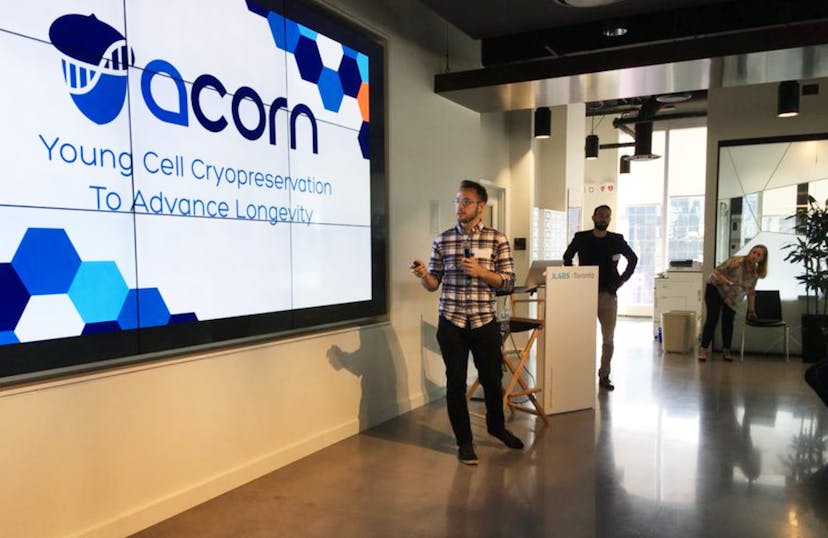
Pitching Justin Trudeau in Waterloo, 2016
Trudeau was doing a tour of the Waterloo innovation ecosystem. Shortly after winning Waterloo's big $25k pitch competition.
Acorn in the Velocity Garage, 2017
I gave an interview for a university review podcast (Ten with Ken) on the Velocity startup ecosystem at the University of Waterloo back when I was the CEO of Acorn.

Acorn post-launch startup in Toronto, 2018
I gave an interview for podcast 'Spotlight on the Six' (Akash Pasricha) on Acorn, bioengineering, the Toronto startup ecosystem, and my transition from CEO to COO of Acorn Biolabs in 2017.

Featured in Disrupt Magazine, 2019
We attended a Singularity University event in Calgary, Alberta where we caught the attention of Disrupt Magazine writers.
(Click image to Enlarge)
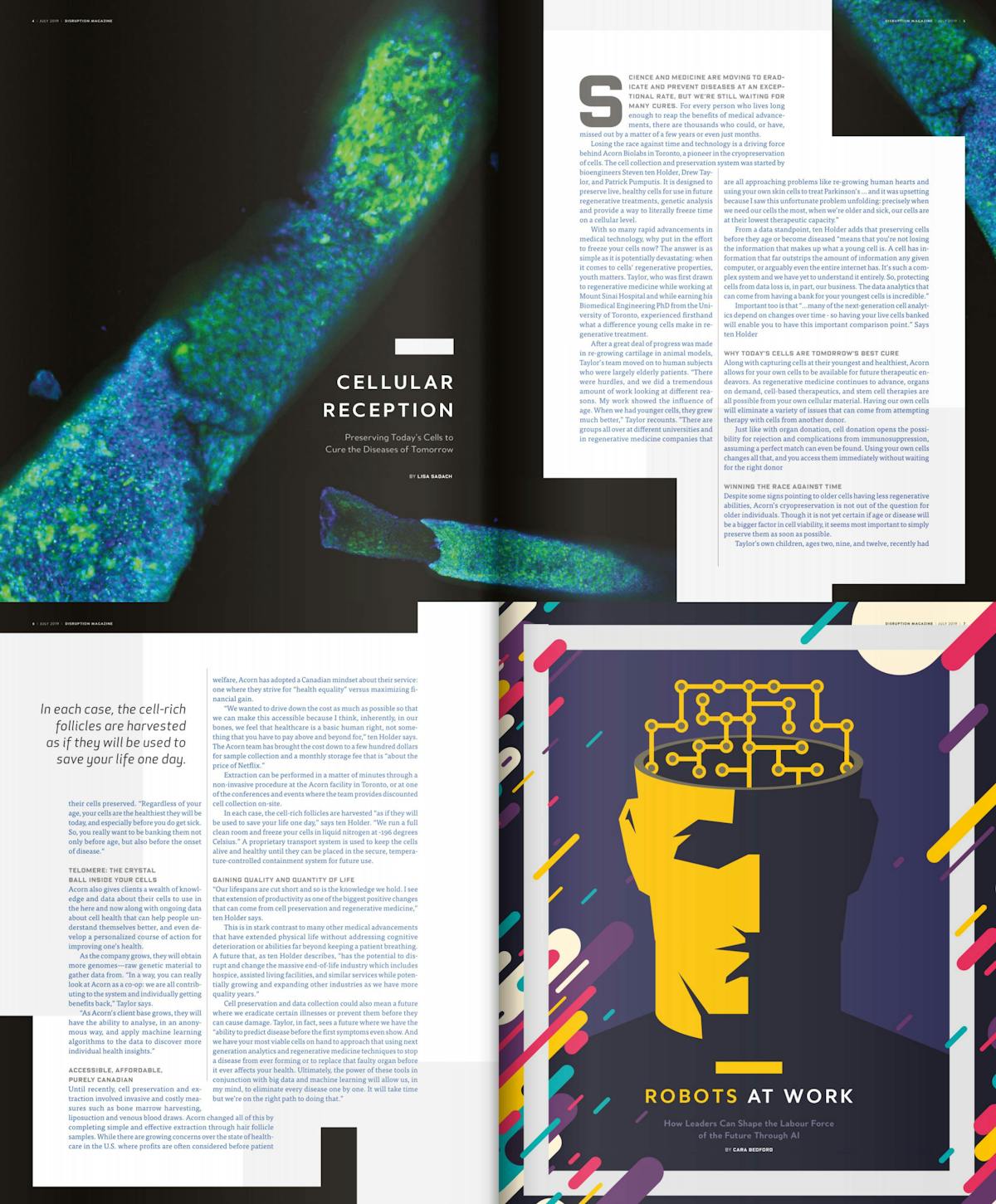
Featured in Disrupt Magazine, 2019
We attended a Singularity University event in Calgary, Alberta where we caught the attention of Disrupt Magazine writers.
(Tap image to enlarge and explore)
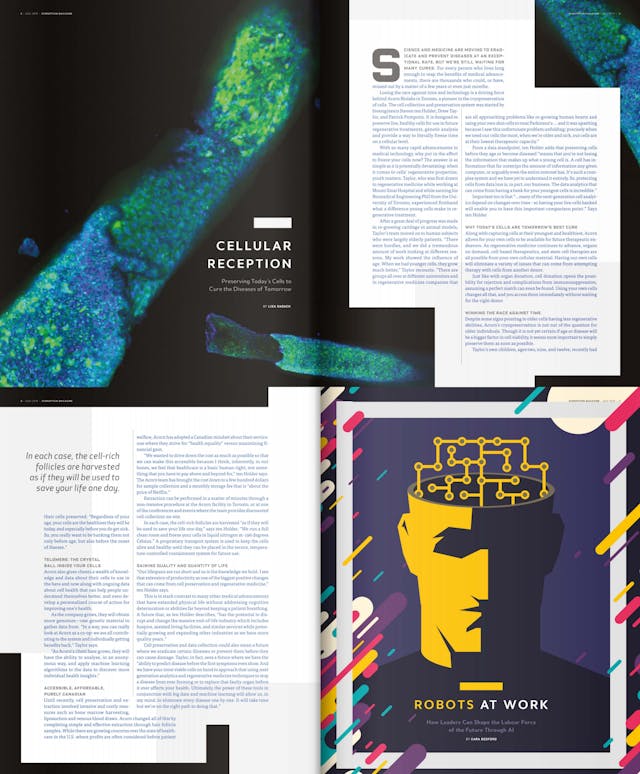
Discussing Acorn with a TKS students in Vancouver, 2020
I gave an interview for a TKS student podcast 'The Daily Experiment' (by Mikey and Mukundh) on Acorn as a concept, bioengineering principles, the philosophy of personality and more back in 2020.

TKS student interview Vancouver, 2020
I gave an interview for a TKS student podcast 'The Daily Experiment' (by Mikey and Mukundh) on Acorn as a concept, bioengineering principles, the philosophy of personality, and more back in 2020.

Patent Publication of Transport Kit, 2022
I worked really hard to bring an at-home version of the cell collection process into reality. I lead the design and created all of the images you see in the patent. Believe it or not, I used Blender to create all of these!
After a few years of design and movement through the patent process, the world-wide patent (WO 2022/094714 A1) was finally awarded to us in 2022.
(Click image to Enlarge)
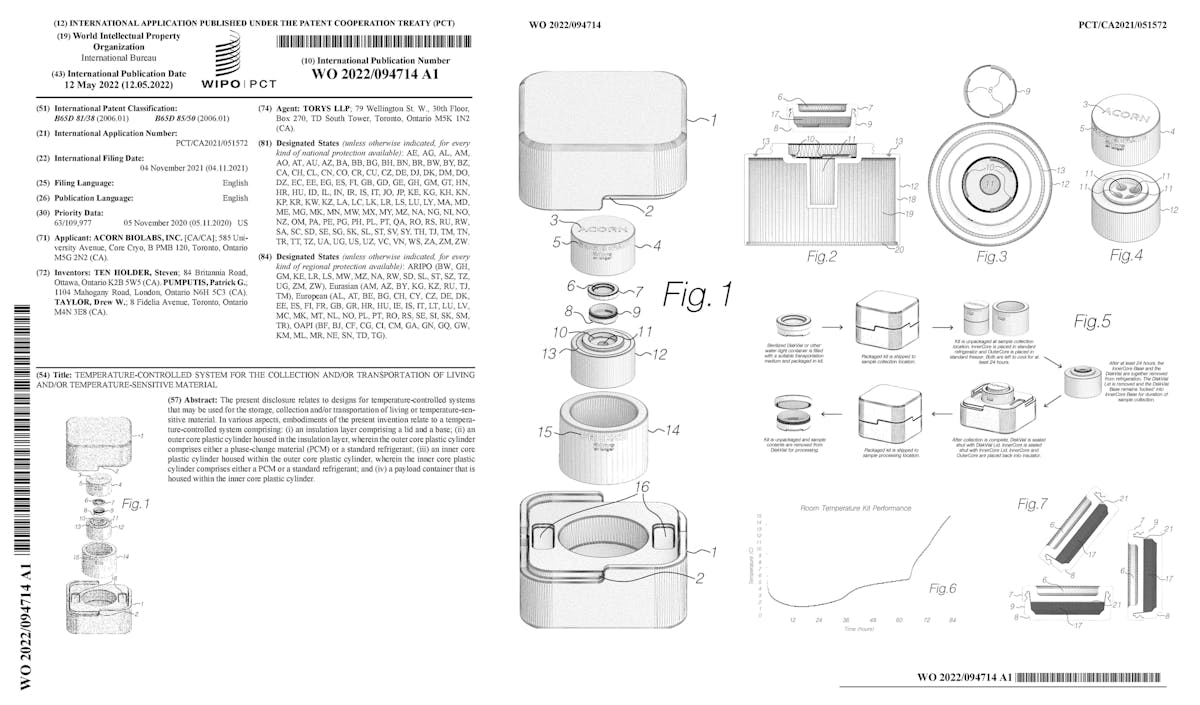
Patent Publication of Transport Kit, 2022
I worked really hard to bring an at-home version of the cell collection process into reality. I lead the design and created all of the images you see in the patent. Believe it or not, I used Blender to create all of these!
After a few years of design and movement through the patent process, the world-wide patent (WO 2022/094714 A1) was finally awarded to us in 2022.
(Tap image to enlarge and explore)
